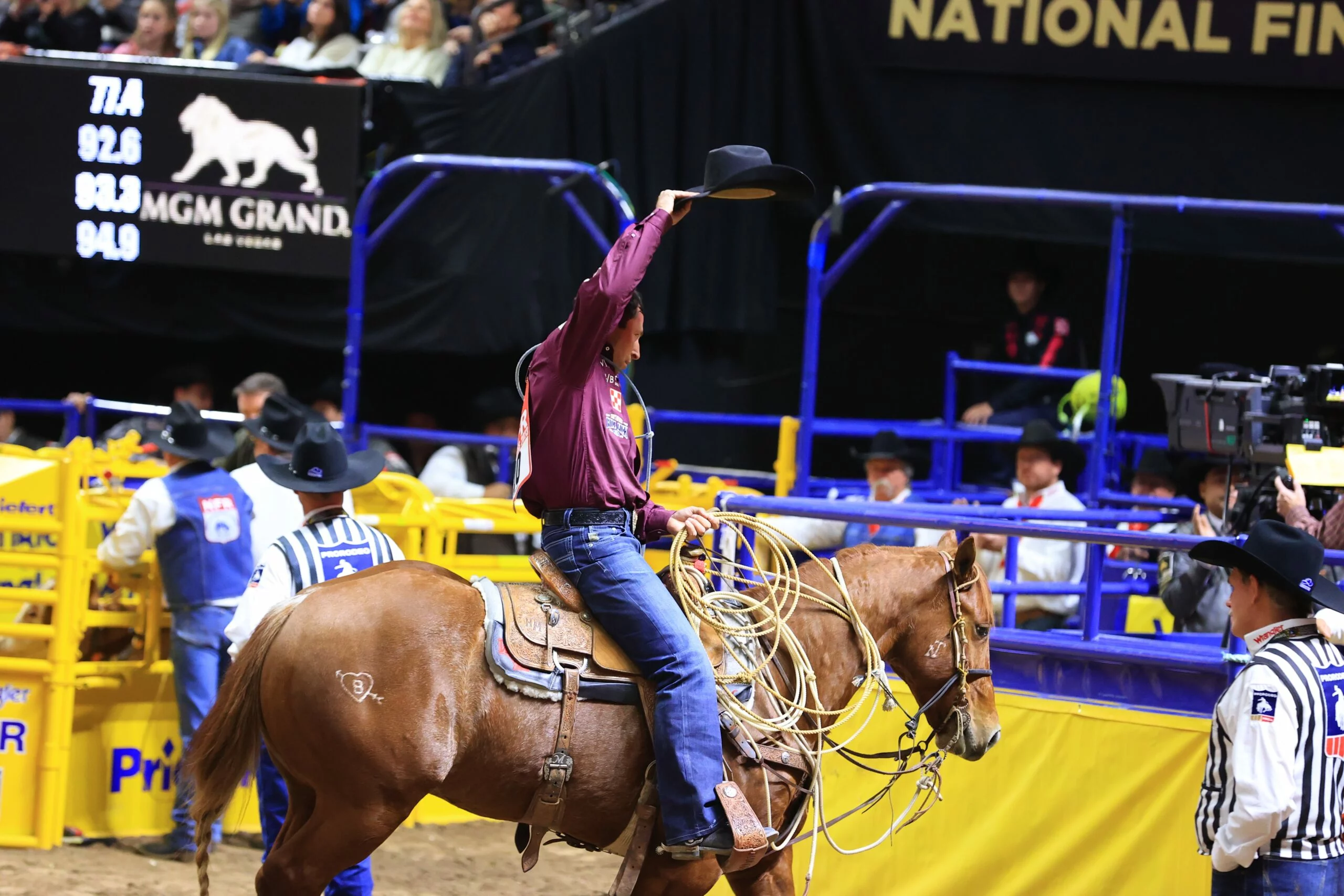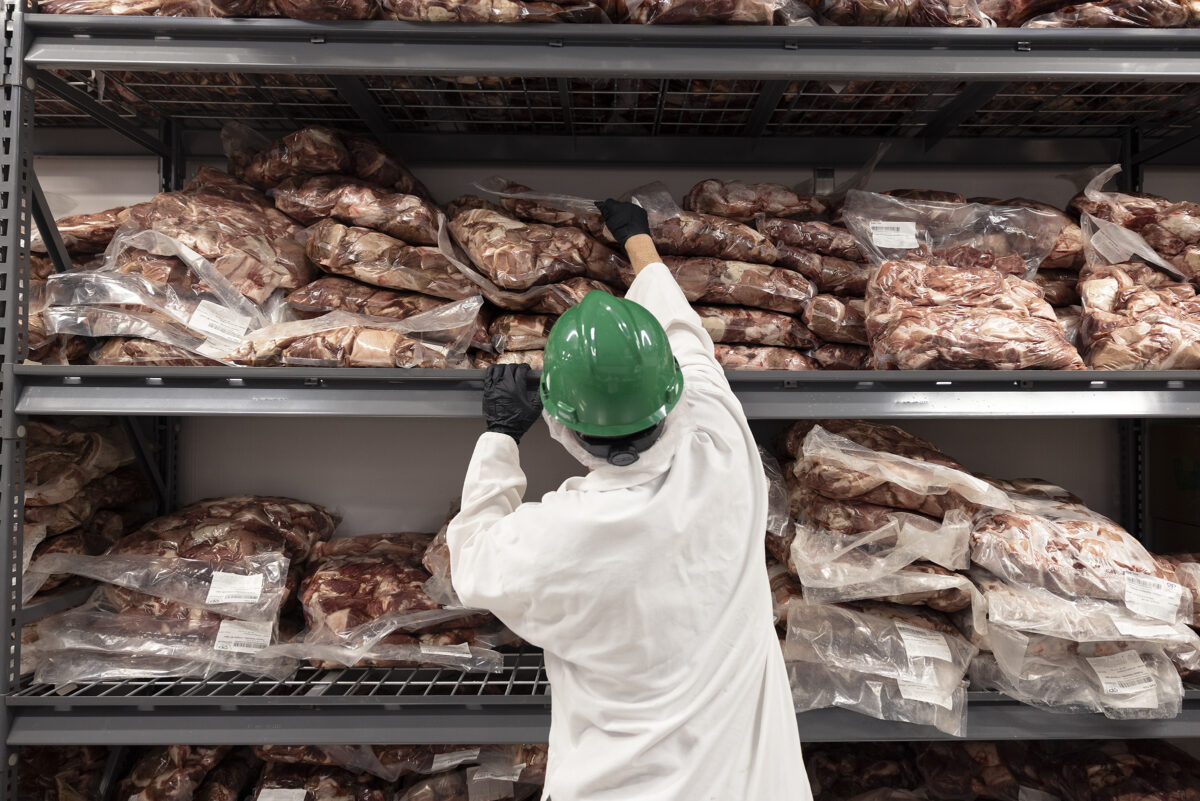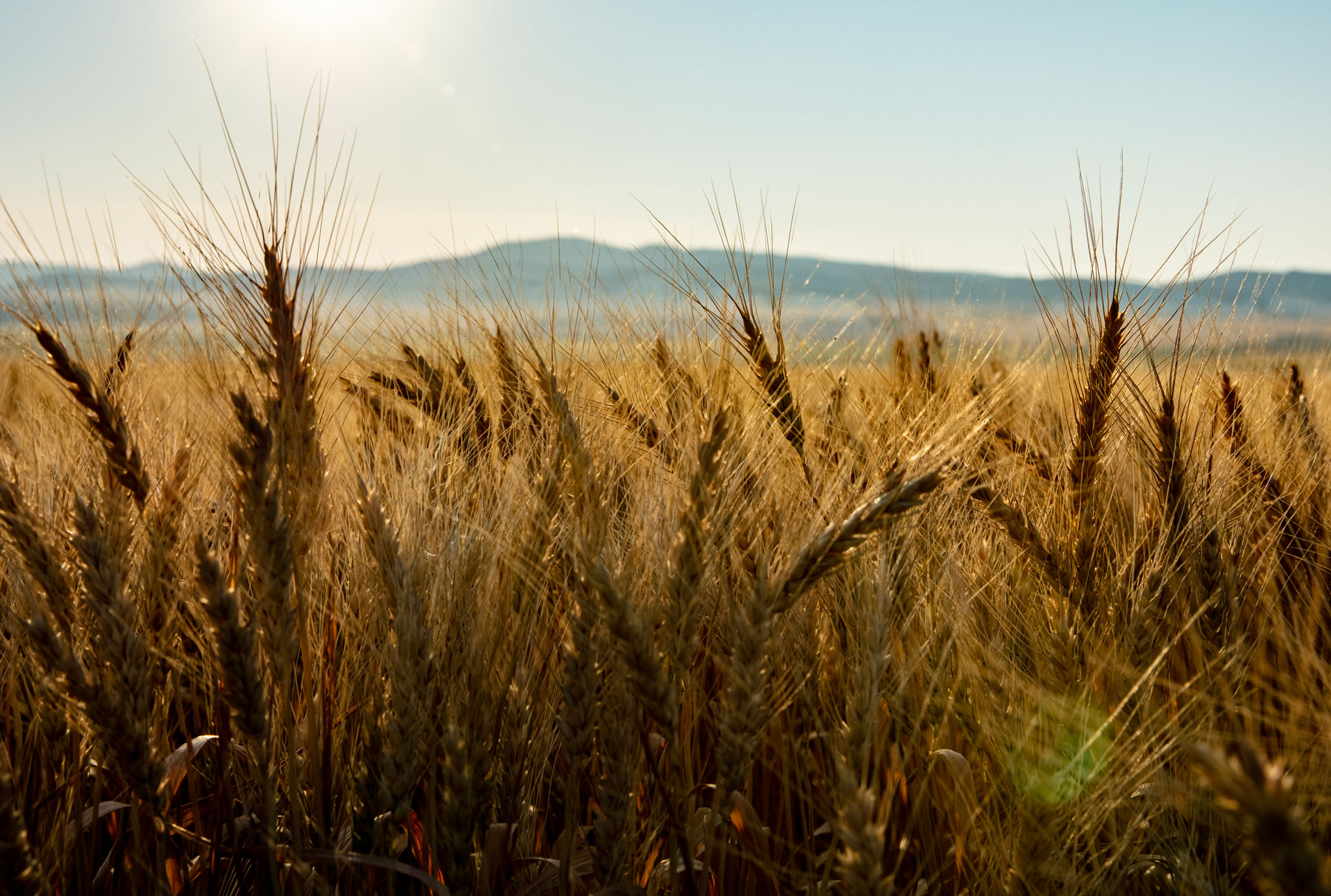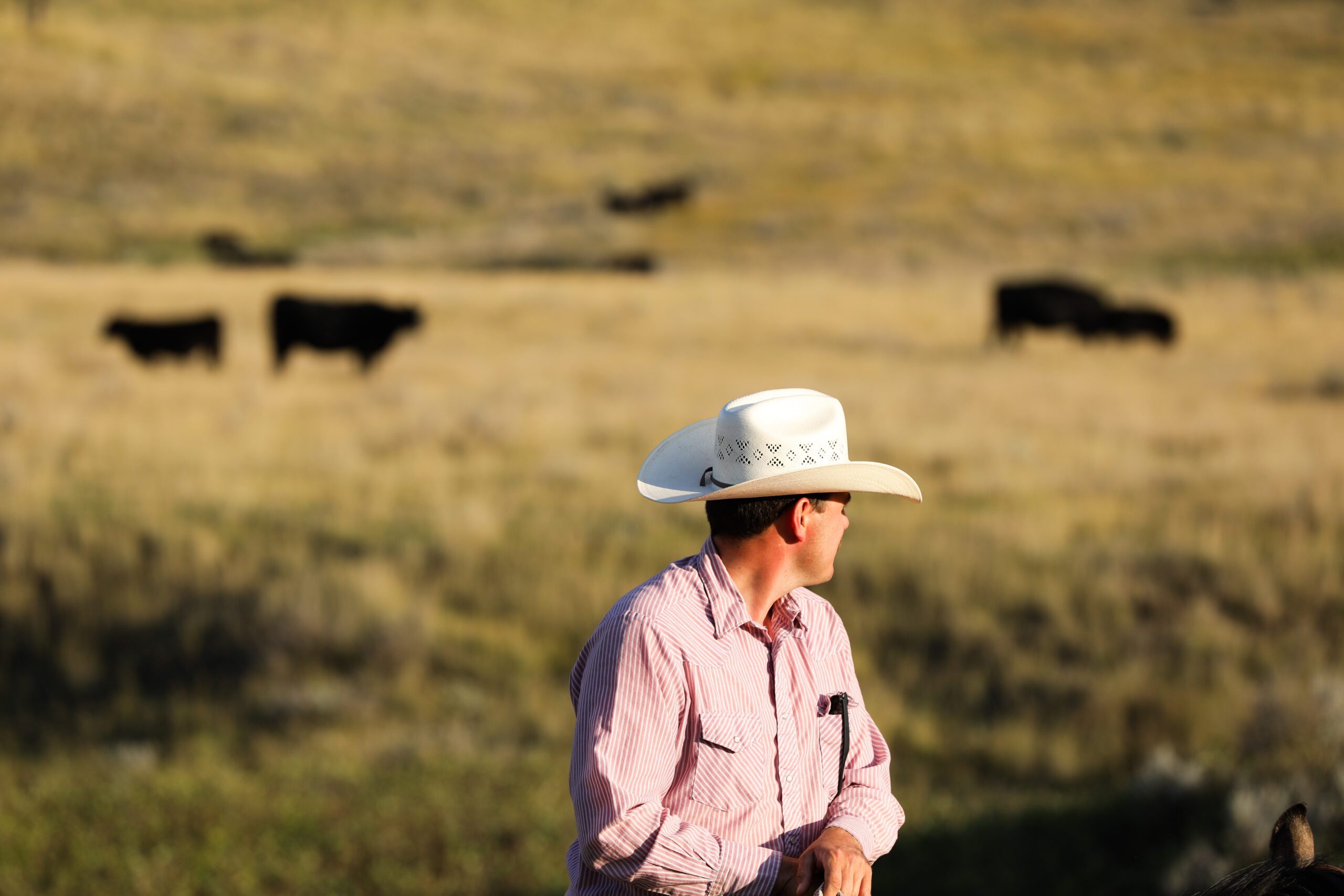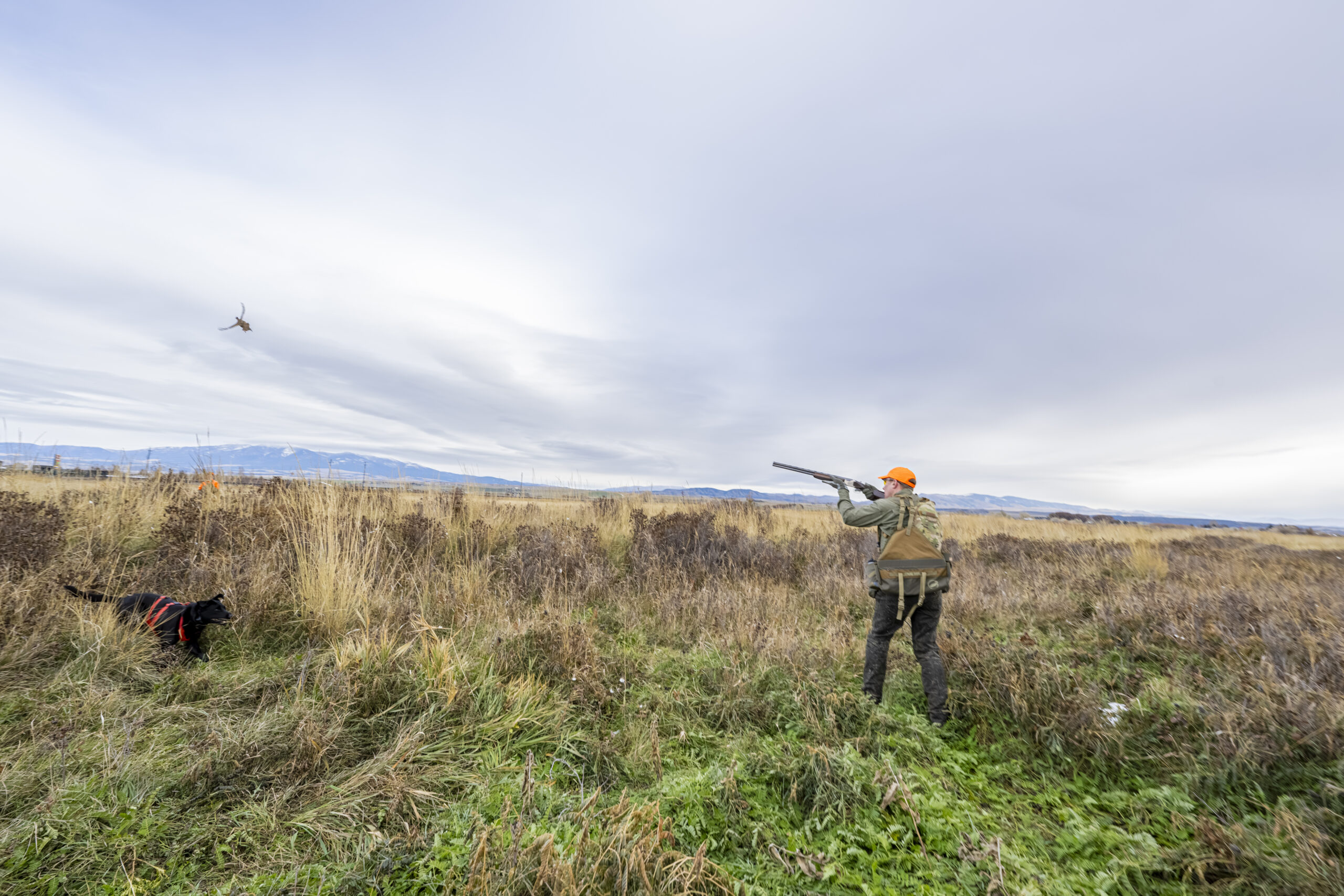Inside Look: Bull Sales
“7,000 dollar-bidder-now, 8,000 dollar-bidder-now, 9,000 dollar-bidder now, 9,000 dollar-bidder now”.
The chants of a livestock auctioneer are spoken so fast you can just barely catch the dollar amount being called out for the lot of animals in the sale ring. At a bull sale, Montana bull breeders prepare to auction off their best bulls to a crowd of local and out-of-town cattle producers who have come to shop for sires for their herd. Bull sales are the once-a-year payday for breeders and mark an important day for buyers as well—the future quality of their cattle herd depends heavily on the bulls they buy today. Fifty percent of a calf’s genetic makeup comes from the bull for up to fifty calves, whereas a cow contributes 50% of the genes to just one calf.
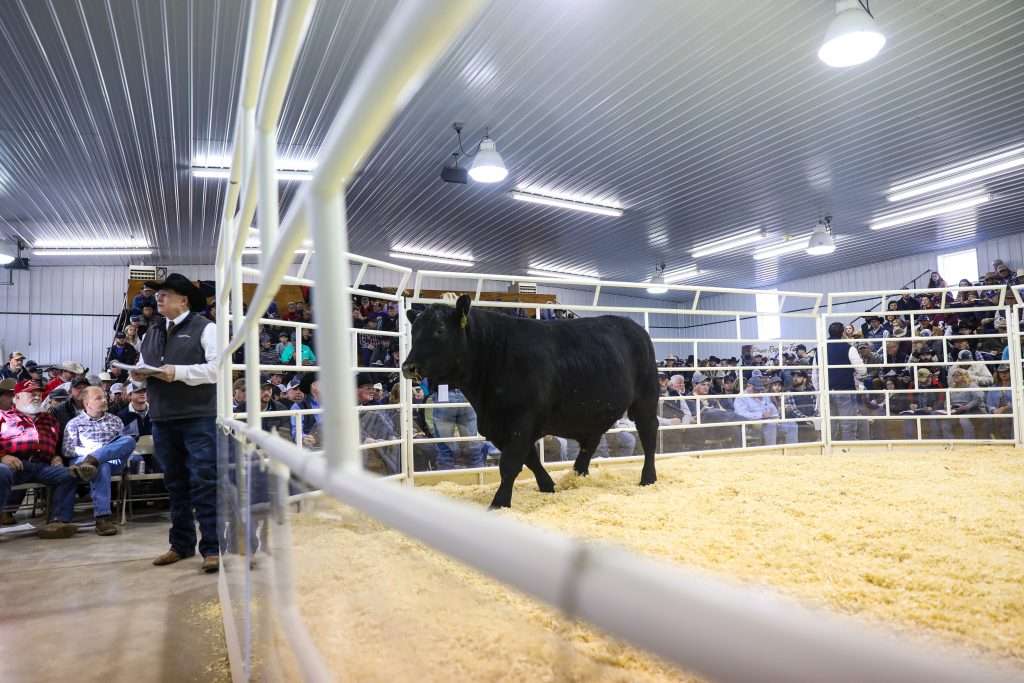
Well prepared buyers will know what qualities and traits in a bull are their top priorities and have a clearly defined budget before the sale starts. Studying the bull sale catalog and getting a closer look at the animals before they hit the auction ring is best practice to make sure the bull is worth the bid. Most buyers review the Expected Progeny Differences or the EPDs of an animal to determine if it will be a good fit for their cattle program—whether they are breeding cattle to add to their herd or selling off calves to the feedlot. Selecting a bull based on EPDs can help a cattle producer improve the traits of their herd through genetics, and EPD statistics offer more accuracy than adjusted weights and ratios.
There are a wide variety of EPDs for bulls, but the most typical metrics in a sale catalog are birth and weaning weights, physical appearance and the performance of the animal and its relatives. Some of the most commonly used EPDs are summarized in the table below, courtesy of the University of Montana.
Commonly used EPDs
| EPD | EPD Abbr. | Unit of Measurement | Usefulness of EPD |
| Calving Ease Direct | CED | Difference in percentage of unassisted births when bred to first-calf | A higher CED value indicates greater calving ease when bred to first-calf heifers. |
| Birth Weight | BW | Pounds | Indicates a sire’s ability to transmit birth weight to his progeny, a lower value indicates calves that will be lighter at birth. |
| Weaning Weight | WW | Pounds | Indicates a sire’s ability to transmit weaning growth to his progeny, a higher value indicates calves that will be heavier at weaning. |
| Milk | Milk | Pounds | Indicates the additional pounds of calf weaned by a bull’s daughters due to milk production. As milk increases, so does a cow’s nutritional requirements. |
| Yearling Weight | YW | Pounds | Indicates a sire’s ability to transmit yearling weight to his progeny. As yearling weight increases so does mature cow weight. |
| Ribeye | REA | Square inches | Predicts the difference in ribeye size of a sire’s progeny compared to progeny of other sires. |
| Marbling | Marb | Fraction of the difference in USDA marbling score | Indicates a sire’s ability to transmit marbling ability to his progeny. A greater value indicates greater marbling potential in offspring. |
| Scrotal | SC | Centimeters | Predicts the difference in transmitting scrotal size compared to other sires. A larger scrotal size is positively correlated with the fertility of the bull’s offspring. |

EPDs are generally included in the bull sale catalog, but buyers can always contact the breeder before the sale to address any outstanding questions about a particular animal.
Like other types of auctions, the bull in the sale ring goes to the bidder with the highest offer, so buyers won’t always leave with their top selections. Lunch and refreshments are often served at auction—after all it’s a celebration for the folks who are selling their cattle and finally get to see the profits of all their hard work. Even if you’re not in the market for new bulls, attending a bull sale is an exciting event filled with the energizing calls of the auctioneers, the sights and sounds of some of the top cattle in the world, and the celebratory comradery amongst the cattle ranchers on both sides of the table.
Western Ranch Brokers partnered with Horizon Marketing Agency, owned by Volborg, Montana locals Marni and Kenneth Gaskill, as they attended the Schaff Angus Valley production sale in Saint Anthony, North Dakota to share a glimpse of the action at this year’s sale.
Looking to expand your cattle operation? Learn more about Western Ranch Brokers available cattle ranches for sale:
Featured Cattle Ranches for Sale:
Contact us to find out more about the Western Ranch Brokers team and how we can go to work for you.


